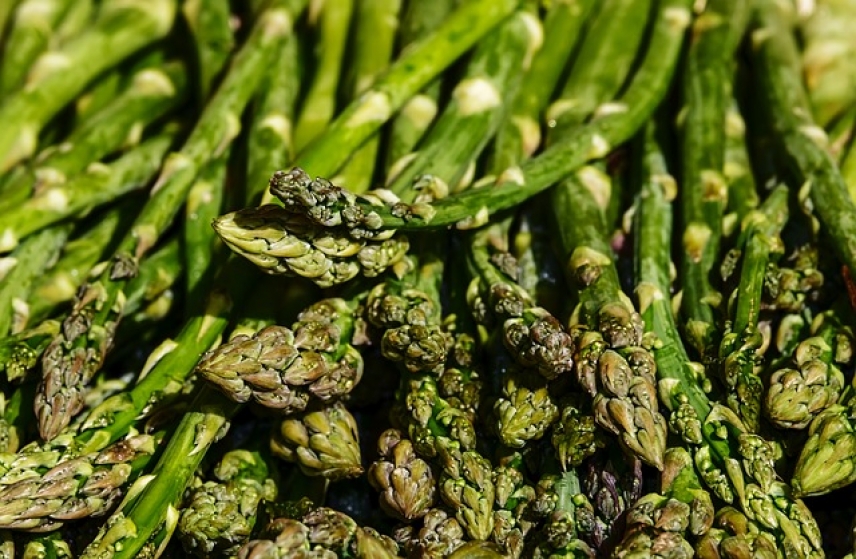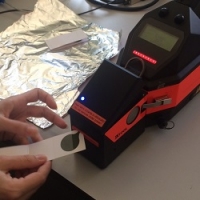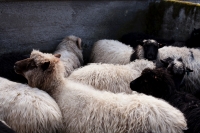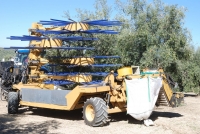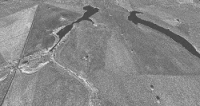Concrete made from coal ashes proves to be just as resistant as concrete from quarry aggregates
Escrito por UCC+iA University of Cordoba research team in partnership with the University of Navarra successfully uses waste from thermoelectric plants instead of natural resources to make concrete for structural use and demonstrates that it has the same characteristics for construction.
Overexploitation of quarries in order to obtain sand and gravel needed to produce concrete is currently one of the most challenging environmental issues. Rocks are not inexhaustible, though they may seem. So, for years the scientific community has been searching for a way to manufacture concrete without depleting the Earth’s crust. This is done by approaching the issue from different perspectives. This is the case of two University of Cordoba research teams that worked together in order to obtain a material that is just as sturdy and durable, but more sustainable. This was done by chemists and engineers working closely together.
The chromosome responsible for asparagus gender is characterized
Escrito por UCC+iA University of Cordoba research project draws a genetic map of garden asparagus and marks the chromosome determining gender
Garden asparagus is, from a financial perspective, the most important asparagus species of all. Its cultivation area is equal to that of garlic, carrots and eggplants, making it decisive for the asparagus sector.
Molecule flight speed is the new key for detecting drugs
Escrito por UCC+iThe University of Cordoba is participating in the development of an analytical methodology able to quickly differentiate cannabinoids in plant material and in waste remaining after being manipulated
The presence of cannabinoids in different textile and pharmacological goods and the need to distinguish them from those found in drugs and psychotropics has led to the development of different analytical techniques that allow for effectively differentiating them.
A research group at the University of Cordoba Genetics Department has analyzed gene variation in five Spanish sheep meat breeds as the first step to increase profitability in livestock
How could a sheep farmer’s job be made easier if they had a tool to choose the meat breed best suited to their needs beforehand? Much money and time would be saved by using a panel of markers to select a breed with genes associated with meat production. Finding an efficient and cost effective way to do so led the AGR-2018 “Improving and conserving genetic resources of domestic animals” research group to count sheep and above all, to analyze the genetic variability of their RNA (ribonucleic acid).
A new harvester decreases the cost of olive picking in traditional olive groves
Escrito porThe University of Cordoba Mechanization and Rural Technology research group designed a harvester that improves the profitability of traditional olive farming
Productive traditional olive groves, which make up 70% of Andalusian olive farming, are in a complicated situation in terms of financial sustainability. The lack of mechanization so vital to picking olives has made new already-mechanized plantations such as intensive and superintensive olive groves surpass traditional olive groves, which still spend 40% of their harvesting budgets on picking.
The University of Cordoba HUM-882 Archaeology research group has used an Italian radar network to analyze the territory of the ancient Roman city near the Upper Guadiato River
They were designed to carry out military espionage and ended up becoming one of the greatest allies of cultural heritage. They were created by the Italian government and ended up working for a Spanish university. Although, in their new mission, in an almost poetic way, they maintain a certain link to their Italian origin. In the end, the network of satellites dubbed COSMO-SkyMed (COnstellation of Small Satellites for Mediterranean basin Observation) has analyzed 49 km2 within the territory containing an ancient Roman city: Mellaria, located within the township of Fuente Obejuna, in the province of Cordoba, whose habitants are still called melarienses [Mellarians] today.



